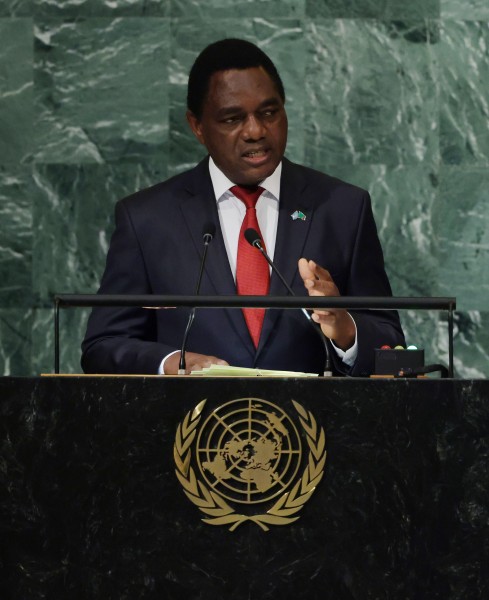Zambia’s broadcasting regulator yesterday suspended the licences of the country’s only major independent television channel and two radio stations on as-yet unexplained “national security” grounds, a move the International Press Institute (IPI) said appeared illegal and politically motivated.
The chair of the IBA’s board, Brigadier General Justin Mutale, said the decision targeting MUVI TV, Komboni Radio and Radio Itezhi-Tezhi was ordered after the stations were found to have engaged in “unprofessional conduct” in coverage “before, during and after” Aug. 11 general elections.
Police in riot gear seized the stations’ premises last night and turned off their transmitters. However, the IBA refuses to divulge what the stations are alleged to have done wrong.
The regulator’s standards and consumer affairs manager, Leah Komakoma-Kabamba, told IPI that the case presented “a matter of national security” and there was “no time to wait” to give the stations a warning to correct their behaviour ahead of the suspensions, as Zambia’s broadcasting law requires. She said that no more information will be released ahead of a hearing set for Sept. 14.
But MUVI TV’s attorney, Milner Katolo, noted that Zambian law also explicitly requires the IBA to hold a hearing before any suspension, not one “after the fact” next month. He also argued that Sec. 29 of the law – which does allow licence suspensions on security grounds – has no provision for waiving the notice and hearing procedure in such a situation.
Katolo said his client had been given “no specific particulars” as to the accusations against it, which would appear to make mounting a defence against the IBA’s claims difficult. MUVI TV, in fact, drew praise following the elections from the Zambia branch of the Media Institute for Southern Africa (MISA Zambia) for its “fair and balanced coverage”.
The attorney also accused the agency of effectively blocking MUVI TV’s ability to appeal the suspension for the time being.
“You have to exhaust administrative remedies,” he told IPI. “First go to the [information] minister, then [you can go] to the High Court. But there’s no minister in place. I wrote to the IBA to ask for guidance [on whom to approach]. They have sat on it.”
Asked whether he believed the case against MUVI TV and the others to be politically motivated, Katolo responded: “Without a doubt.”
IPI Director of Advocacy and Communications Steven M. Ellis said he feared that was correct, calling the suspensions “the latest in a series of developments that raises grave concerns about the state of media freedom and democracy” in Zambia.
“Most major media outlets are sympathetic to or controlled by the Patriotic Front (PF) party-led government of President Edgar Lungu,” Ellis said. “Prior to the elections, the government seized the only major print outlet willing to criticise government actions. Now, as the opposition challenges Lungu’s election win in court, the government has seized the only major television station willing to provide an alternative voice. Worse, it has shuttered that broadcaster and two radio stations in an absolutely Kafkaesque manner, leaving them unable to even discern the charges against them.”
He added: “We call on all government agencies in Zambia to resist political pressure and respect the rule of law, and we urge the IBA to cancel these suspensions immediately.”
Ellis was part of an emergency press freedom mission to Zambia by IPI and the African Media Initiative ahead of the elections that concluded that tax authorities’ ongoing seizure of the offices and printing presses of opposition newspaper The Post over disputed tax debts was politically motivated and “not about taxes”.
Delegates set forth the basis for that conclusion in a report warning that a rise in political violence and pressure on independent media had cast “a troubling shadow” over Zambia’s reputation as a leader in respect for democracy and human rights in the region. They also raised fears that other leaders would be inspired to misuse state authority to silence critics in order to cling to power.
The Post has continued to publish since its seizure. However, Zambia’s Revenue Authority has refused to comply with an order by the country’s Tax Appeals Tribunal in July to hand the seized premises over to the newspaper and allow it to resume operations while the two sides work to reconcile the actual amount owed.



